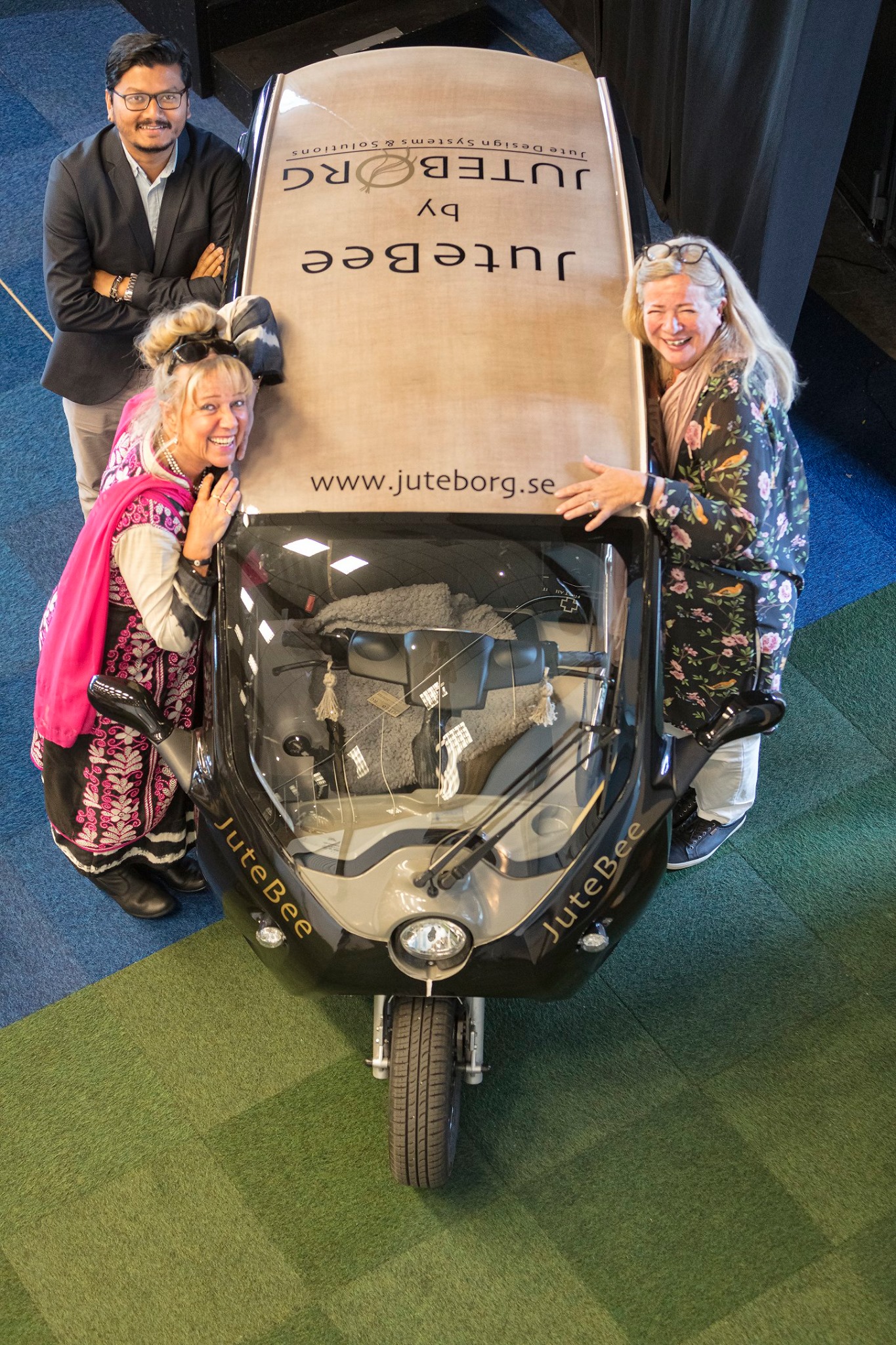The Jutebee™ Story
The Jutebee™ Story
Ljungby Komposit sees potential in bio-composites.
How do you take a Jute plant from the valleys of East Bengal, and turn it into a 3 wheeled electric pod cruising through the streets of Sweden’s West-coast? All it takes is hard work, innovation and international cooperation. This is what the JuteBeeTM story is all about, partnering up with new people and tapping new resources for a more sustainable future.
Bangladesh is the world’s second largest exporter of Jute fibre after India. Here the flooding is deep and the monsoon rains are heavy, but after the storms the Jute plant stands tall as the golden lining in our planets cloudy future. Grown in Faridpur, Bangladesh, jute is rotated with rice so it does not compete with food. It takes 120 days for the stalks to grow up to 4,5 metres tall, after which it is soaked in water for 15 days. The Jute is then oiled, spun and packaged and ready to make the 3000 mile journey to Gothenburg, Sweden (among other places around the world).
Juteborg AB is an entrepreneurial and development company focussed on high-tech Jute fiber solutions and innovative design services within the Automotive/transportation, Construction/Interior Textile and Packaging. Else-Marie Malmek and Christina Östergren are the enthusiastic entrepreneurs behind Juteborg AB. The pair have garnered a reputation for being everywhere and anywhere someone is willing to lend an ear to the future of Jute. One such interaction was with Göran Folkesson (CEO, Clean Motion AB) where they brought up the innovative idea of building a Zbee with a roof/back exterior made out of JuteTechTM– special developed Jute fabric.
Clean Motion, the 2013 World Climate Solver, was positive toward the idea and reached out to Ljungby Komposit, the composite specialists behind the Zbee’s impressive fibre glass body. With partial financing from Vinnova AB, Juteborg (the project owners and managers) had now brought together a team to realise the JutebeeTM idea.
“It was very interesting to us because of the social responsibility aspect. Contributing to the development of the country and especially the Bangladeshi women, was an exciting prospect for us.”
-Thommy Rosberg, MD Ljungby Komposit
Ljungby Komposit is known by its customers as a competent and trustworthy sub-contractor. Their ability to deliver flexible, high quality solutions was essential to the JutebeeTM project. Despite it being the first time working with Jute, the production team was ready to test the fibres capabilities.
“Jute is really easy to work with. Most of our processes were the same and we look forward to seeing standardisation in the Jute industry so we can use it in a more systematic way”
-Anders Werner, Ljungby Komposit Production Manager
When the process was complete the JutebeeTM was presented at the Lindholmen Science Park in January 2019 and the final product speaks for itself.
The Jute gives the coach a smooth finish and a natural aesthetic, at the same time meeting the strength and weight requirements of the regular Zbee.
The JutebeeTM may be an impressive first step in sustainable car manufacturing but does it really have a future in the industry? According to Else-Marie Malmek, Project Manager for the JutebeeTM, “society is beginning to understand the importance of what we are doing. Sustainability (Economic, Environmental and Social aspects included) is already a competitive advantage and it will only become more important in the near future, actually a prerequisite for sustainable business.”



